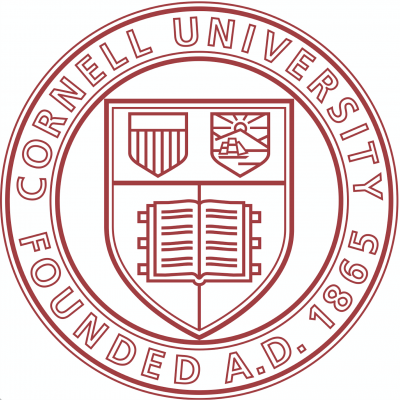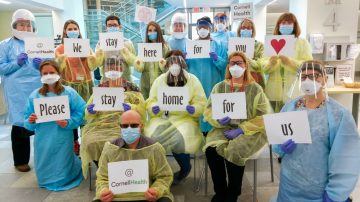Highlights from Announcements 3/30/20

Graduate School COVID-19 Update (3/30/20)
March 30, 2020
Dear Graduate School Community:
I hope you and those important to you continue to be healthy through this pandemic, and that those who require medical care have appropriate access. Aside from the significant disruptions to daily life and academic studies that all of us are experiencing, undoubtedly many of us will personally know someone whose health is directly affected by COVID-19. That’s true in my case, with my younger daughter in New York City. I empathize with those of you who also are trying to stay in touch with distant loved ones.
Graduate students may not have received the March 30 communication to faculty and staff from the Provost and the Executive Vice President on managing the financial impact of COVID-19. I am writing to address some of the issues raised in that communication, and other topics that may be useful to graduate students, graduate faculty, and staff supporting graduate programs.
The March 30 communication acknowledges that there are, and will continue to be for many semesters, significant financial impacts associated with COVID-19 disruptions. University leadership is implementing several steps to manage risks associated with economic uncertainty, including a hiring freeze on staff and temporary workers, a salary freeze, a travel ban, changes to summer programs, curtailment of discretionary spending, and reevaluation of capital projects. Details are in the March 30 communication.
For the Graduate School, we anticipate consequences of the actions detailed in this communication (March 30) will include the following:
- Travel Funding: Related to the travel ban, we will strive to continue to make Graduate School funding available for our research travel grant program for graduate students after general pandemic-related travel restrictions are lifted. It is quite likely that conference travel grants will not be available until Cornell’s travel ban is lessened or lifted.
- Summer Teaching Opportunities: Due to changes in summer programs, summer teaching opportunities for graduate students will be limited. Students who were planning to engage in summer teaching should check with the summer supervisor to learn whether online teaching opportunities will continue to be available.
- Professional Development: Professional development programming (Pathways to Success) will continue, with modifications that include online opportunities. Future in-person opportunities once restrictions are lifted will not include food or refreshments until the curtailment of discretionary spending is loosened. We also anticipate that engagement of external speakers will be curtailed except where sponsored funds are available to cover the costs.
In addition, we ask that graduate students and graduate faculty consider, together, the following points in your ongoing discussions as appropriate to your situation:
- Continuing Research and Scholarship: Cornell continues to operate, with all teaching online and research scholarship continuing remotely as appropriate to individual circumstances. We encourage faculty and students to discuss effective ways to remain productive remotely, including writing proposals or thesis/dissertation chapters, entering and analyzing data, conducting literature reviews, doing computational analysis or theoretical work, etc. We also encourage you to discuss any necessary pivots you might need to make in the focus of your scholarship, such as modifications in your research project direction or topic(s), so that you can continue to progress toward degree completion.
- Student Progress Review: For research degree students and faculty advisors (special committee chairs), please use the annual Student Progress Review as an opportunity to plan activities for the coming year, and to reflect, together, on how disruptions associated with the pandemic have caused changes to planned activities this year, modifications to academic activities and anticipated progress, and strategies to continue being productive academically.
- Funding: As noted in earlier communications (see COVID-19 statements from Graduate School March 13 and University March 15 Provost message to faculty), assistantship and fellowship funding continues, and graduate students on assistantship appointments are expected to continue to fulfill their assistantship duties. Students should work on academic, research, scholarship, and teaching responsibilities remotely, and stay in touch with faculty advisors/supervisors for guidance on how to plan activities over the coming weeks to be most productive.
- Exams: Remote exams (Thesis-exam, A-exam, B-exam) are allowed and supported. The Graduate School will be flexible if students need some extra time to meet their academic milestones (e.g., committee formation, A-exam, etc.) due to COVID-19 disruptions. The thesis/dissertation submission deadline has been extended to Friday, May 15 for Spring ’20.
Please continue to look toward a brighter future while making the best that your circumstances allow in the current situation. Be understanding that everyone, graduate students, faculty, and staff, are under enormous pressures and are having to be quickly adaptive to frequently changing scenarios.
The Graduate School continues to be available to you as questions arise. Please send your questions to gradschooldeans@cornell.edu .
Thanks for all you do, and be well,
Barb
Barbara A. Knuth
Dean of the Graduate School
Registrar: COVID-19 Deadline Extensions
- Thesis/Dissertation Submission Deadline: The thesis/dissertation submission deadline has been extended to Friday, May 15. Refer to the Thesis & Dissertation Planning Timeline for detailed information on deadlines and submission requirements.
- Spring 2020 Drop Deadline: The last day to drop courses or change grading basis has been officially extended to Tuesday, April 21. Please refer to the Academic Calendar for other important date changes.
Due to the rapidly evolving situation, students should continue to monitor their email and the university websites for future updates.
COVID-19 Updates, FAQs, and Resources
- Latest University COVID-19 Updates, FAQs, Statements
- Graduate School COVID-19 Updates
- Graduate School COVID-19 Updated Hours
- Graduate School COVID-19 FAQs
- Graduate School COVID-19 Resources
For information on the following and more, visit the Graduate School COVID-19 Resources page:
- Support and tips for remote learning
- Resources for effective remote teaching
- Articles for successful remote working
- Tips and tricks for using Zoom
Cornell Health Ready to Combat Coronavirus

“The warriors” is how Dr. Anne Jones ’04 describes the 15 clinical staff members currently at the forefront of Cornell Health’s fight against the spread of coronavirus.
As of March 24, Cornell Health – which provides care for more than 80% of Cornell’s undergraduate, graduate, and professional students each year – has moved to “pandemic operations,” based on the global public health landscape and recommendations from the Centers for Disease Control and Prevention (CDC).
Seeking Stories of Connection in the Time of Coronavirus
Wendy Wolford, Cornell’s vice provost for international affairs, and her office have issued a global call “for stories of caring and compassion.” They are seeking positive, short submissions from across the Cornell community that show compassion, caring, and connection during the coronavirus pandemic.
Read the Chronicle story and enter a submission
Remote Work Tips from Graduate and Professional Students
Tips for Staying Connected While Working Remotely:
- “I found this fun (and free!) online website that allows for multiple people to work on a single virtual jigsaw puzzle. I find that just a little mental break, letting your brain relax and look for patterns, is very helpful to staying productive! What I do, personally, is I use ‘Google Hangout’ to video chat with multiple people at once while we puzzle.I do this with my family and friends every day from 11:30 a.m. – 12:00 p.m. and it is a great reset. Hope this helps people!”
- “Once in the morning and once near the end of the day, I write a ‘nice thing’ about what I value in my friend or family member – and send it to them. It brightens people’s days, and it also brings your mind back to gratitude and mindfulness.”
Tips for Staying Productive While Working Remotely:
- “Rather than reading the news and scrolling my social media feeds for three hours in the morning (what I was doing during the first week after classes were suspended), I’ve learned to save my best hours for my hardest work. I give myself a little time in bed to check for anything that needs a response, listen to a podcast while making breakfast, then get right to work on analysis for a research project I’m working on. Only after I’m done with that do I check in on news.”
- “I make it a point to take a short yoga break in the afternoon to recharge.”
- “I make a schedule and stick with it. I also make sure my phone is turned over and is only checked at 7:00 a.m., 11:00 a.m., 2:00 p.m., and any time after 5:00 p.m. That way, neither the news nor my friends and family can distract me while trying to work.”
Tips for Staying Motivated While Working Remotely:
- “Attending webinars on online teaching (thanks CTI!) actually really helped me during the first few tough days of working from home. They gave me a sense of regularity and helped to jog ideas for our shift to online classes on April 6.”
- “I have random fun facts that pop up a few times per day on my iPad reminding me why I love science and learning! Motivates me, and brings me peace.”
Policy Spotlight: Health and Personal Leaves of Absence
Students who wish to pause their studies for a personal or medical reasons may do at any time. To explore a personal leave of absence please check out the Graduate School’s info page.
If you are experiencing a medical or health problem that prevents you from being successful in your studies you should review the HLOA info page for details about the application process. A health leave of absence provides protections for students so they can focus on restoring their health and then return to studies after a period of one to eight semesters away.
If you would like to discuss taking a health leave of absence, please feel free to contact Janna Lamey at janna.lamey@cornell.edu.
If you have health issues that impair, but don’t fully preclude, academic progress you may also request accommodations offered by the office of Student Disability Services. You’ll find helpful information on their website and friendly counselors available to talk.
Spotlight on Resources: Cornell Health Access
Cornell Health remains open! If you are concerned about your physical or mental health, call Cornell Health 24/7 at 607-255-5155 or reach out online. Some other services are being provided by phone consultation or secure messaging.
- Medical appointments: All patients should call before coming to the health center so your concern can be triaged appropriately. When you call us, we will advise you about whether your appointment will be in-person or through phone consultation or secure messaging. We may ask you to contact us again after the pandemic has passed for routine health care needs.
- Counseling and Psychological Services (CAPS): Currently, limited counseling and psychiatry services are available by phone. Learn more on our Counseling webpage.
- Physical Therapy: PT is offering limited services by phone or video. See the PT webpage for more information.
- All other appointments: Staff members are currently conducting some appointments, consultations, and referrals by phone.
- Pharmacy: Our pharmacy will continue to provide limited prescription services and other essential health supplies. Students must call ahead for pharmacy services. Pharmacy staff are prepping prescriptions and purchases to be ready for pickup to minimize students needing to walk into the building.
Please be aware that Cornell Health has implemented social distancing measures and pandemic protocols across all of our services, in accordance with CDC guidelines. This means that all students and visitors must call Cornell Health before coming to the building (607-255-5155).
Kudos!
Master of Health Administration Student Granted Two Patents
 Ashoke Bose, a master of health administration student in the College of Human Ecology, has been granted two patents in by PTO: Pat. 10,546,266, titled “Controlled Environment Shipment Container and Tracking Method” and dated January, 28, 2020, and Pat. 10,575,474, titled “Enclosure Temperature Control System” and dated March 3, 2020.
Ashoke Bose, a master of health administration student in the College of Human Ecology, has been granted two patents in by PTO: Pat. 10,546,266, titled “Controlled Environment Shipment Container and Tracking Method” and dated January, 28, 2020, and Pat. 10,575,474, titled “Enclosure Temperature Control System” and dated March 3, 2020.
Doctoral Candidates Publish Article in Studies in Medievalism
Medieval studies doctoral candidates Anna Waymack and John Wyatt Greenlee had their article, titled “In the Beginning Was the Word: How Medieval Text Became Fantasy Maps”, published this week in the journal Studies in Medievalism.
Eight Graduate Students Receive 2020 Sustainable Biodiversity Awards
For the ninth year, Cornell Atkinson has awarded funding for research on the most pressing questions in protecting biodiversity. This year’s cohort includes 12 Cornell graduate students and postdoctoral researchers working on topics from seagrass health to crop resistance and invasive moths to the genomic diversity of warblers.
Graduate students in the cohort include: Julie Davis, Anna DiPaola, Sudan Kariuki, Shanthanu Krishna Kumar, Josephine Martell, Hayley Schroeder, Jenny Uehling, and Marisol Valverde. Learn more.
Alumna Named 2020 BBC/AHRC New Generation Thinker
 Christine “Xine” Yao, Ph.D. ’17 has been named one of the 2020 BBC/Arts and Humanities Research Council (AHRC) New Generation Thinkers. Read more about her research and the PhDivas podcast she cohosts with Cornell alumna Liz Wayne, Ph.D. ’16.
Christine “Xine” Yao, Ph.D. ’17 has been named one of the 2020 BBC/Arts and Humanities Research Council (AHRC) New Generation Thinkers. Read more about her research and the PhDivas podcast she cohosts with Cornell alumna Liz Wayne, Ph.D. ’16.

